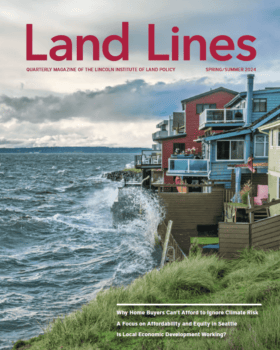
Land Lines
This issue explores cities rethinking street surfaces in response to climate change, factors influencing home buyers to consider climate risk, the work of Seattle’s Black Home Initiative to address affordability and inequity, and more.
Subscribe-
What Will Make Home Buyers Consider Climate Risk? What Happens Once They Do?
By Jon Gorey, November 17, 2023 -
How Seattle’s Black Home Initiative Is Addressing Affordability and Inequity
Amanda Abrams, February 20, 2024
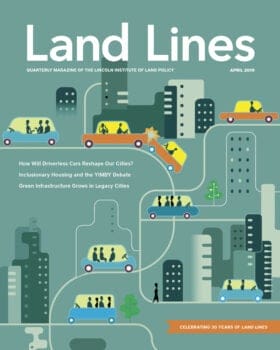
April 2019
This issue explores the future of cities, with features on scenario planning, autonomous vehicles, inclusionary housing and the YIMBY movement, and green infrastructure in legacy cities.

January 2019
This issue, celebrating the Babbitt Center for Land and Water Policy and 30 years of Land Lines, includes articles on the colorful history of the Colorado River, seeking compromise in an era of drought, how western planners can integrate water and land, and more.
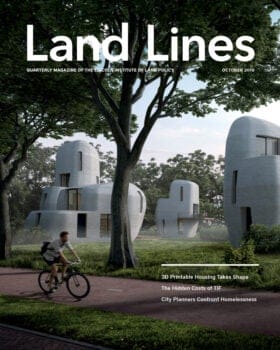
October 2018
This issue considers the pitfalls of tax increment financing (TIF)—a popular economic development tool that often falls short of its promise to revitalize struggling neighborhoods; affordable housing solutions for the homeless in Seattle, Los Angeles, and New York City; plus 3D-printed houses, scenario planning, land value capture, and more.
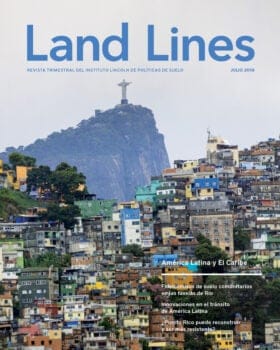
July 2018
This issue focuses on Latin America and the Caribbean, with features on community land trusts in Rio’s favelas, transit innovations in Latin America, and Puerto Rico’s recovery efforts, with an emphasis on rebuilding for greater resilience.

April 2018
This issue highlights the post-Hurricane Harvey policy changes under consideration in Houston as the prospect of more extreme weather looms, St. Louis’s efforts to integrate a federal spy center campus into its disinvested North Side, and tools for estimating the extent and value of urban trees. It also debuts the Mayor’s Desk interview with Lincoln Institute fellow Anthony Flint.
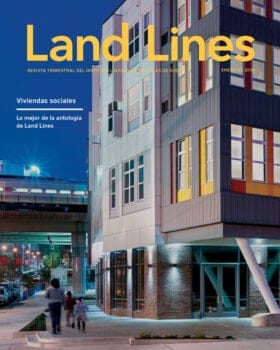
January 2018
This issue looks at the evolution of manufactured homes as a robust, desirable source of permanently affordable housing; innovative infill development in Portland, Boulder, Cambridge, and other hot-market cities; and capital absorption workshops that are helping to ease affordable housing shortages in Denver, San Francisco, and Los Angeles.
